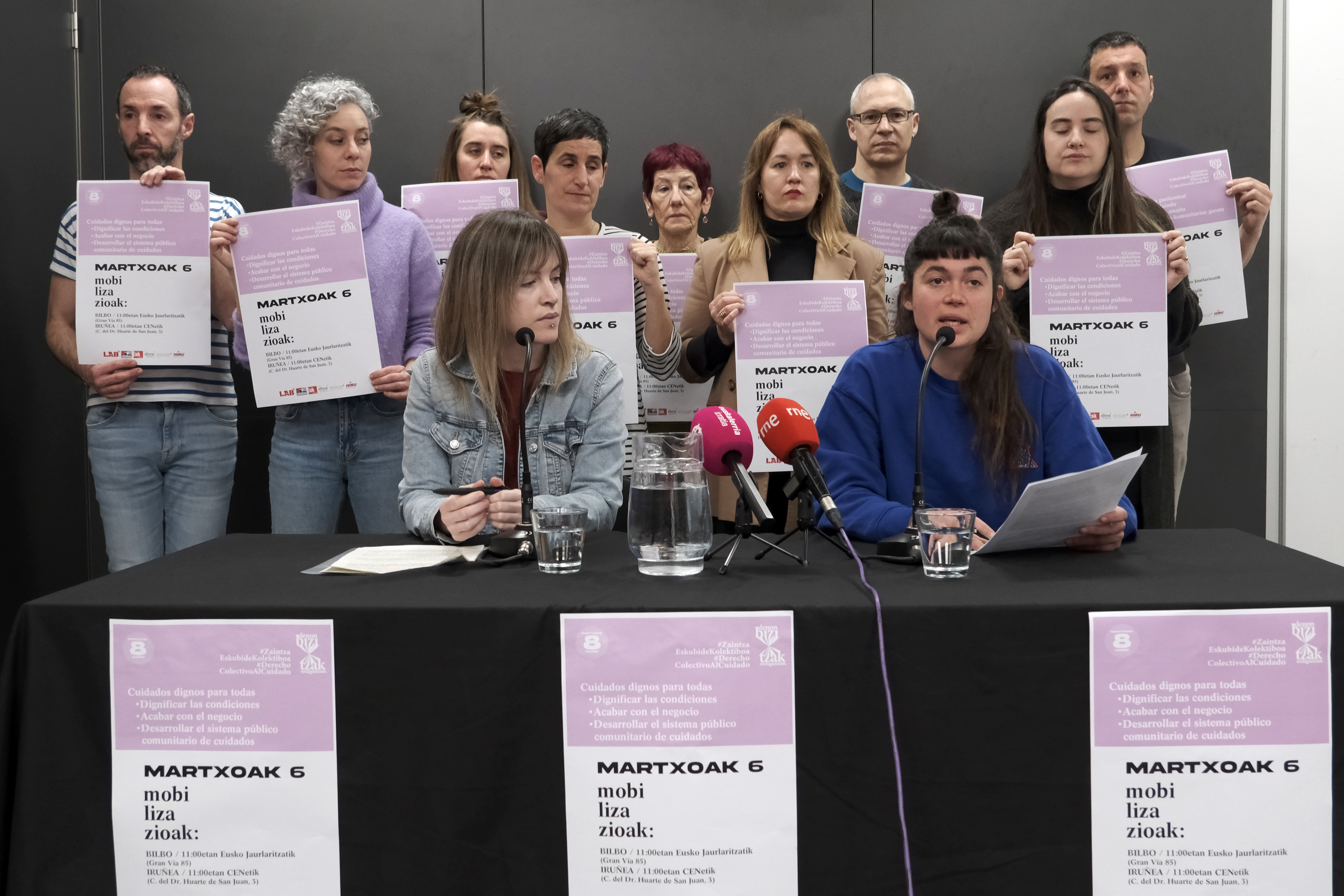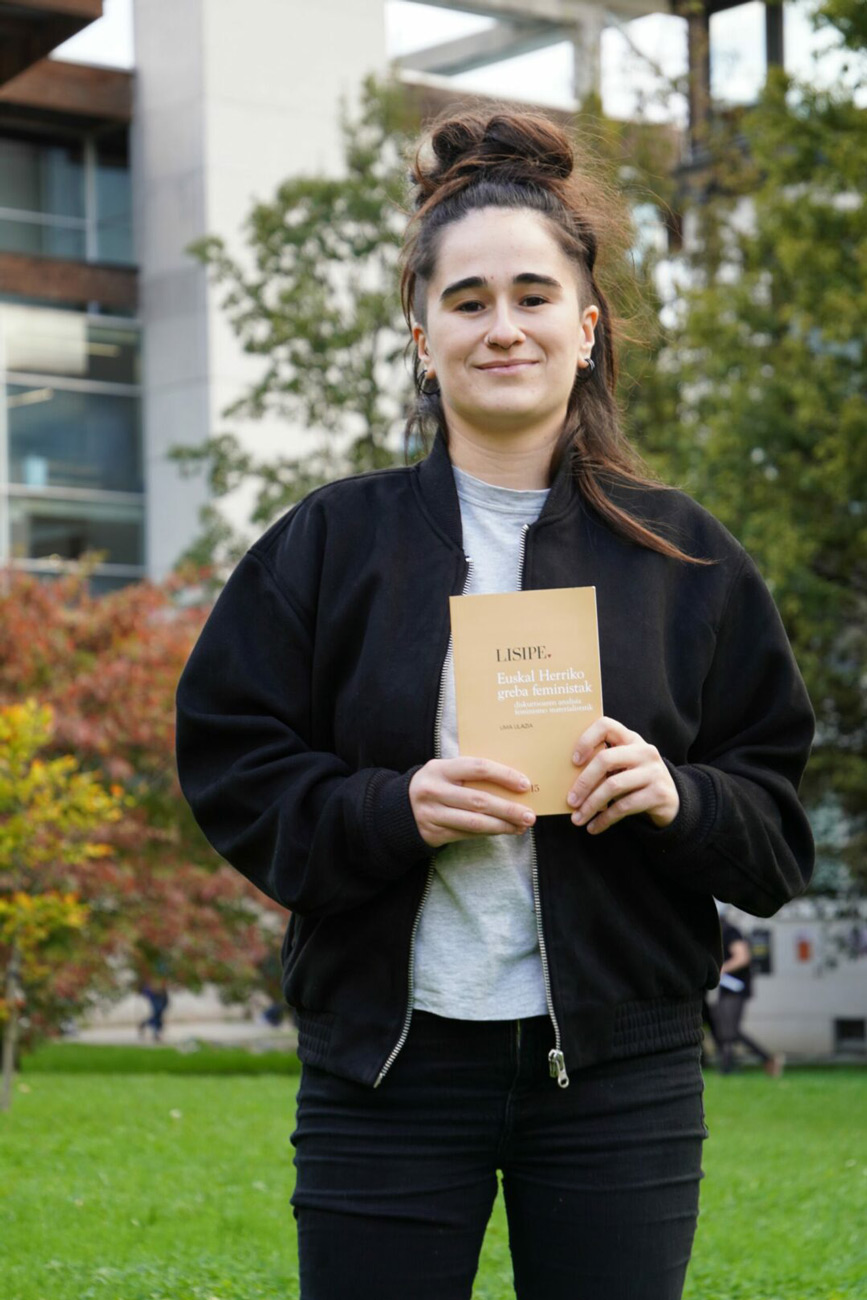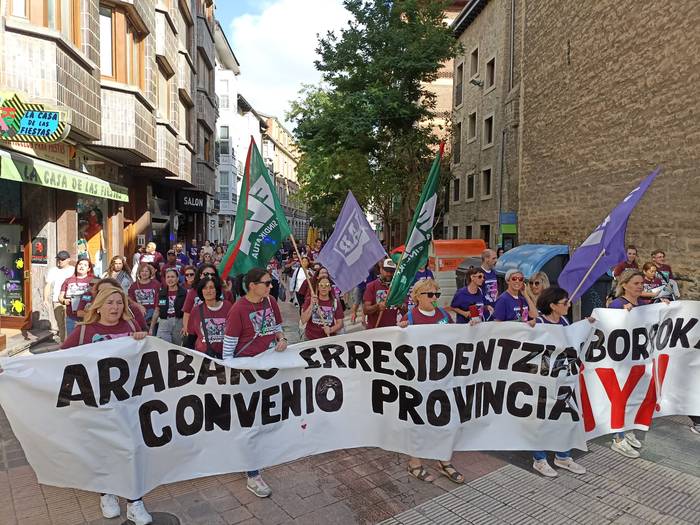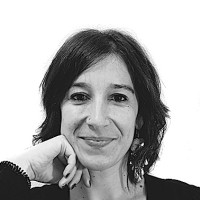Usurbil continues its efforts to transform the care model
- A group photo of compatriots, agents and organizations that collaborate to make Usurbil a more caring town is attached to this news. We took it out at the event called "Usurbil, the village caretaker" held on Saturday in Sutegi. They presented us with the path that this country is taking in this direction and the challenges ahead.
Usurbil continues its efforts to transform the care model. Its resources can be found within the Usurbil care ecosystem, as you can see in one of the photos that follow. Among other things, the structure of this ecosystem was presented to the attendees of the Forge in the framework of the event "Usurbil, the caring people" on Saturday, the person in charge of this care ecosystem and municipal social worker Maider Irisarri and the mayor of Usurbil, Agurtzane Solaberria. This structure has a clear objective, says Irisarri. "The purpose of all these tools is to take into account all the areas that make up people's lives."
Services For
this purpose they have formed different working groups. One of them is service. It brings together those working on "community integration of people cared for in the different resources of the locality and in the homes": The coordinators of the day care center, the representative of the houses with care, the facilitator of the school of experience, the representative of the day care service of the city council, the facilitators of the workshops of memory work, the coordinator of the house by house of the city council... "Different actions have been launched; visits between services, cooking workshop with Basic Vocational Training, visits to municipal gardens, the dynamic "Let's go to the street"... "The services team, in parallel, are working on the workspace of people in need of care."
On the other hand,
it works in the area of social and health coordination, working groups of local social workers, doctors and nurses to ensure collaboration and coordination in the care of people. It meets every month since 2023. During these sessions "we try to agree on common criteria for the care of the people we serve", while exchanging the necessary information. "It is very important that the professionals who will collaborate know each other personally. This makes it easier to work together and solve problems.”
They also
have a team of people who need care. It belongs to the compatriots who "receive attention in the different services" and who need care, "protagonists of all this elaboration, so it is essential to listen to their voice and guarantee their participation in all this". This is demonstrated by the meetings of this working group. “At least we’ve seen that they’re excited to be a part of it.”
Professional caregivers Those
in need of care and their caregivers are also a priority group in this ecosystem. "We have seen that one of the biggest challenges for the ecosystem is to interact with the direct workers who provide care at home and bring them to the logic of the ecosystem. Together with affective caregivers, they are the ones who will make it possible to carry out people's life plans and life projects," says Irisarri. But, of course, "this cannot be done in violation of the rights and living conditions of professional carers."
For this reason, "we want to create a model of care that puts the lives of all of us at the center, from a feminist and anti-racist perspective." In this way, they take advantage of the Women’s House to unite, network and empower this working group, because to it “we want to attract them and make them their space, to inform them of the resources that exist here and we want to consolidate the popularization of these women and the networks between them”. They have announced training sessions that they intend to maintain for the rest of the year. These events will focus on self-care, conflict management strategies, and/or community and care relationships.
Affective caregivers
have also formed another meeting point with affective caregivers. In fact, "if we are going to put the lives of all people at the center, we cannot forget the affective or family caregivers who work so hard." Several training sessions have been held to bring them into the logic of life plans and also to inform them of what is being done in the other workplaces, and thus "to make all of us strong in the same direction".
Finally, the
Community Working Group needs to be mentioned."Today it is made up of four women from the village and one man," says Irisarri. During the monthly sessions, "they always overcome fatigue and act with enthusiasm in the tasks of mutual care," said Irisarri at Saturday's event. As a result, "it is true that they always revive my desire to continue with the project. In addition, they help me to popularize the ideas and discourses that we have at the political and technical level, forcing me to put them in a way that people can understand. They make me realize the value of these important little things and how these bring about great changes in people’s lives. Thank you team! ".
One of the people who responded to the City Council’s invitation to form this working group is the compatriot Elena Rikondo, who spoke at the Forge event. "We are listening in the village, we are trying to change our gaze and transmit what we have received to Maider. It’s hard but it’s comfortable.” According to Rikondo, the origin of the quintet is no coincidence. "We've all been in volunteer groups since we were young, some have retired and continue to do that work."
They have a clear challenge; "how to raise awareness in order to make people aware of the importance of the issue of care". For this, he explained, "we want to create a portfolio of volunteers with the City Council, but we need to know what to ask people and how much time to ask them," he said, to ask for a short but effective time. He wanted to thank those who are already working in secret on these tasks. "I want to thank those who quietly work volunteers going to the Air Force, those of the experience school for accompanying... A lot of people are silently talking.” People who encouraged the team. "We are a lot of women, we want to encourage men and we want to encourage young people."
Bizitza erdigunean jartzeko abagunea ikusi genuen feministok zein ekologistok Covid-19 pandemia garaian. Ez ginen inozoak, bagenekien boteretsuak eta herritar asko gustura itzuliko zirela betiko normaltasunera. Bereziki, konfinamendu samurra pasa zutenak haien txaletetan edo... [+]
Martxoaren 6an 11:00etan Bilbon eta Iruñean mobilizazioak egingo dituzte sindikatuek, patronalak eta Eusko Jaurlaritza zein Nafarroako Gobernua interpelatzeko, zaintza eskubide kolektiboari dagokionez.
Our towns and cities do not take care of us. We lack land, green areas, community spaces. Our people are designed to serve the capital. In the care village, however, life is the center.
Before, there was a main street, a gigantic street that crossed the city. Consumption and... [+]
Etxeko langile diren eta zaintza lanetan aritzen diren emakumeentzako etxea abian jarri dute Berriozarren. Zortzi pertsonendako lekua duen pisua gaitu dute zaintzan diharduten langileak 6-12 hilabetez espazio duin eta seguru batean bizi daitezen. SOS Arrazakeria Nafarroak eta... [+]
Together with racism, machismo, classism and eleven others, we could also place old age, frivolity. Although the exclusion that can be tolerated on the basis of age is possible for all, when faced with another type of discrimination, the reality can be hardened. Simone de... [+]






















